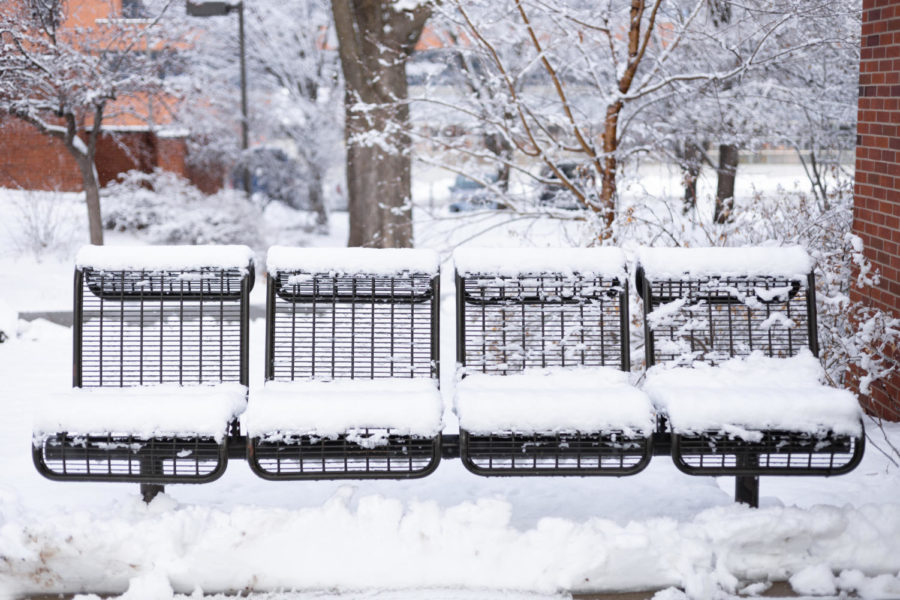COLUMN:A giant sucking sound from suburbia
October 2, 2002
Two recent events have done more than anything else in the past few months — at least since the redistricting — to accentuate the growing split between rural and urban in Iowa. Coincidentally (or not), both of them are in a fast-growing city nestled with other fast-growing cities, a crown jewel of urban sprawl — West Des Moines.
First, Valley High School opened its new $8 million stadium, funded in large part by parents whose students attend schools like Adel-De Soto-Minburn, Martensdale-St. Marys and Collins-Maxwell. Second, ground was broken for a new gigantic $ 200 million mall to top the one that opened four years ago in Iowa’s other jewel of urban sprawl, Coralville.
It’s as if the suburbs are aggressively seeking out ways for those living in the other 90 percent of the state to maintain or increase the resentment toward them. Both situations are tied into a major problem facing rural Iowa — money pouring into “rich” counties while others see shuttering businesses.
The problem with the stadium is not as much that it was built — because it had to be — but what it symbolized with its price tag. The stadium’s money came from the 1-cent local-option sales tax, required to be spent on things like remodeling or construction as opposed to books and supplies. However, it can only be spent in the county it was collected in.
So no matter how much of that revenue came from purchases made in Polk County by people who don’t live there, it all went to schools in Polk County. And since it’s allocated on a per-pupil basis, and Valley is nearly splitting at the seams, the district got a big chunk of change. (Think about it this way — I’m not saying “football field.” I’m saying “stadium.”)
The unequal distribution of the tax is why a lawsuit was filed by about 160 school districts in rural Iowa that challenged the standing tax provisions, claiming that the Iowa state constitution promises Iowans an equal right to education. Because many of the 23 counties that have the local-option taxes are retail-rich and people living in the others have to go there to shop, the urban schools get the funds, and the rural schools whose members contribute to that economy do not.
“There’s no way that counties such as Ringgold [or] Decatur could ever raise that money,” Des Moines attorney Steve Wandro said. “When you have a gulf that wide, we feel that it implicates our equal protection clause. All students should have the same opportunity.”
The Iowa Supreme Court has yet to make a ruling. If the rural districts lose, they will lose in more ways than one, because the issue remains. Valley, and other districts, get money from people that don’t get to share that income with the districts they actually live in.
And where are those funds being generated? In monster malls like the one being constructed in West Des Moines, Jordan Creek Town Center. A “town center” that will surely suck the centers even faster out of real towns. Now Dallas County, where the mall is actually being built, does not have the local-option tax like Polk County does. That shifts the problem from tax-related to the bigger one: the flow of all the money spent in urban areas instead of more rural ones.
The Des Moines area already has Merle Hay, Southridge and Valley West malls, in addition to smaller ones. But the explosion of curving streets that go nowhere and cookie-cutter houses in three shades of brown on what used to be some of Iowa’s best black dirt apparently merit another one to dwarf them all.
The only recourse left, a lawsuit by State Rep. Ed Fallon (D-Des Moines) and the group 1000 Friends of Iowa challenging the environmental study done on the new I-80 interchange at 74th Street relating to the mall’s construction, was dismissed last week. Now nothing will stop the mall and related construction from occurring. (The Iowa DOT helped out with Coral Ridge, too, since it still owns the road going by its west side. But we can’t blame the DOT because it is only doing what the construction and development make necessary.)
And to think that some would like to build another mall in Ames. Isn’t it time a little more thought was given to rural Iowa — and even the smaller cities — about the impact these things are having? Or are we supposed to continue giving money, tax and otherwise, to the huge malls and further emphasize the rural-urban split?
Now new malls and stadiums are not entirely bad, of course, and there is a need for them. But the scale at which these are being built is getting out of control.
On second thought, scratch part of that last paragraph. Anything bringing another Abercrombie and Fitch store to this state is entirely bad.
Jeff Morrison
is a junior in journalism
and mass communication and political science from Traer. He is a copy editor for the Daily.






